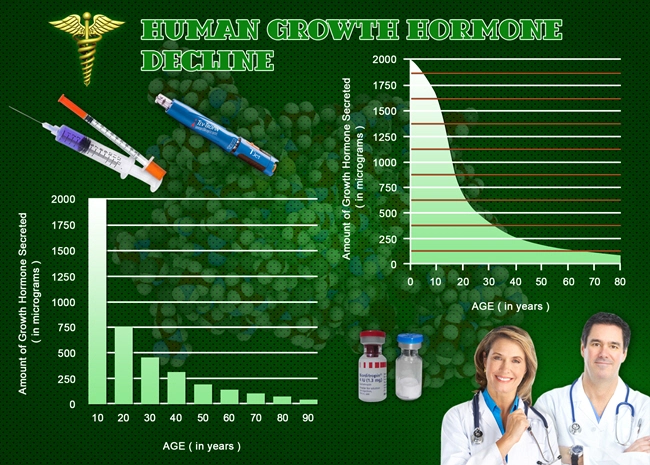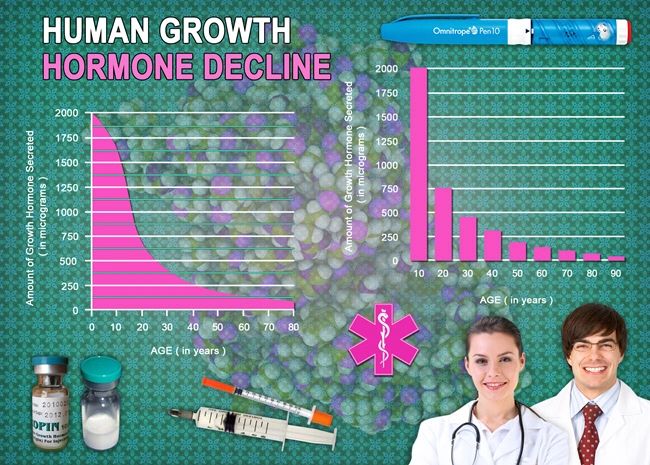
Introduction to Erectile Dysfunction and Cardiovascular Health
Erectile dysfunction (ED) is a common condition affecting millions of American men, characterized by the consistent inability to achieve or maintain an erection sufficient for satisfactory sexual performance. While often perceived as a purely sexual health issue, ED can be an early warning sign of underlying cardiovascular disease (CVD). This article delves into the intricate relationship between ED and heart health, offering insights into why American males should pay close attention to this connection.
The Physiology of Erection and Its Cardiovascular Dependence
An erection is a hydraulic event that relies heavily on the cardiovascular system. When sexual arousal occurs, the brain sends signals to the nerves in the penis, causing the release of nitric oxide. This chemical triggers a cascade of events that relax the smooth muscles in the penile arteries, allowing blood to flow into the erectile tissue and create an erection. Given this process, any condition that impairs blood flow, such as atherosclerosis or hypertension, can contribute to ED. In American males, where heart disease remains the leading cause of death, understanding this connection is crucial.
Erectile Dysfunction as a Predictor of Cardiovascular Disease
Numerous studies have established ED as a potential early indicator of cardiovascular disease. Research indicates that men with ED are at a significantly higher risk of developing heart disease, heart attack, or stroke. The reason lies in the smaller size of penile arteries compared to coronary arteries; damage from atherosclerosis may manifest in the penis before it becomes evident in the heart. Therefore, ED can serve as a critical early warning sign, prompting American males to seek timely medical evaluation and intervention.
Shared Risk Factors: A Common Ground for ED and CVD
ED and CVD share several risk factors, including obesity, diabetes, hypertension, smoking, and a sedentary lifestyle. These factors contribute to endothelial dysfunction, a condition where the lining of blood vessels fails to function correctly, impairing blood flow. American males, particularly those with a family history of heart disease, should be vigilant about managing these risk factors to prevent both ED and CVD.
Diagnostic and Therapeutic Approaches
When American males experience ED, it is essential to undergo a comprehensive medical evaluation to assess cardiovascular health. Diagnostic tests such as blood pressure monitoring, lipid profiles, and possibly stress tests can help identify underlying heart issues. Treatment for ED often involves lifestyle modifications, such as adopting a heart-healthy diet, engaging in regular physical activity, and quitting smoking. Medications like phosphodiesterase type 5 inhibitors (e.g., sildenafil) can improve erectile function and may also have cardiovascular benefits.
The Role of Mental Health in ED and Cardiovascular Health
Mental health plays a significant role in both ED and cardiovascular health. Stress, anxiety, and depression can exacerbate ED and contribute to heart disease. American males should prioritize mental health care, seeking support from mental health professionals when needed. Techniques such as mindfulness, cognitive-behavioral therapy, and stress management can improve overall well-being and potentially mitigate the risk of both ED and CVD.
Conclusion: A Call to Action for American Males
The connection between erectile dysfunction and cardiovascular health underscores the importance of holistic health management for American males. By recognizing ED as a potential early indicator of heart disease, men can take proactive steps to address both conditions. Regular check-ups, lifestyle modifications, and open communication with healthcare providers are essential in maintaining both sexual and cardiovascular health. American males must embrace this knowledge to lead healthier, more fulfilling lives.
Contact Us Today For A Free Consultation
Dear Patient,
Once you have completing the above contact form, for security purposes and confirmation, please confirm your information by calling us.
Please call now: 1-800-380-5339.
Welcoming You To Our Clinic, Professor Tom Henderson.

- Exploring New Horizons: Overcoming Erectile Dysfunction to Rekindle Romantic Intimacy [Last Updated On: February 15th, 2025] [Originally Added On: February 15th, 2025]
- Embarking on the Journey of Triumph: A Comprehensive Guide to Conquer Erectile Dysfunction [Last Updated On: February 25th, 2025] [Originally Added On: February 25th, 2025]
- Triumph Over Trials: Overcoming Battles with Erectile Dysfunction [Last Updated On: February 26th, 2025] [Originally Added On: February 26th, 2025]
- Alchemy of Attraction: Grasping the Biomechanical Puzzle of Erectile Dysfunction [Last Updated On: February 27th, 2025] [Originally Added On: February 27th, 2025]
- Breaking the Stigma: Understanding and Overcoming Erectile Dysfunction [Last Updated On: February 28th, 2025] [Originally Added On: February 28th, 2025]
- Unraveling Misconceptions: A Comprehensive Analysis of Erectile Dysfunction [Last Updated On: February 28th, 2025] [Originally Added On: February 28th, 2025]
- Breaking Through the Shadows: Unveiling the Psychological Implications of Erectile Dysfunction [Last Updated On: March 1st, 2025] [Originally Added On: March 1st, 2025]
- The Pill or The Promise: Unveiling The Comparative Efficiency of Erectile Dysfunction Medications [Last Updated On: March 2nd, 2025] [Originally Added On: March 2nd, 2025]
- Enhancing Intimacy in Modern Relationships: The Role of Medical Interventions, Psychological Counseling, and Lifestyle Changes in Improving Sexual Health [Last Updated On: March 3rd, 2025] [Originally Added On: March 3rd, 2025]
- Navigating the Path to Recovery: Understanding and Managing Erectile Dysfunction [Last Updated On: March 3rd, 2025] [Originally Added On: March 3rd, 2025]
- Comprehensive Guide to Understanding and Treating Erectile Dysfunction [Last Updated On: March 4th, 2025] [Originally Added On: March 4th, 2025]
- Exploring the Psychological Impact of Erectile Dysfunction on Men and Relationships [Last Updated On: March 5th, 2025] [Originally Added On: March 5th, 2025]
- Understanding Erectile Dysfunction: Causes, Treatment, and Medication Efficacy [Last Updated On: March 6th, 2025] [Originally Added On: March 6th, 2025]
- The Evolution of Erectile Dysfunction Treatments: From Ancient Remedies to Modern Innovations [Last Updated On: March 7th, 2025] [Originally Added On: March 7th, 2025]
- Revolutionizing Erectile Dysfunction Treatment: Innovations, Telemedicine, and Personalized Care [Last Updated On: March 8th, 2025] [Originally Added On: March 8th, 2025]
- The Vascular Role in Erectile Dysfunction: Understanding, Treatment, and Holistic Management [Last Updated On: March 9th, 2025] [Originally Added On: March 9th, 2025]
- Unveiling the Battle: Testosterone's Impact on Erectile Dysfunction in American Men [Last Updated On: March 12th, 2025] [Originally Added On: March 12th, 2025]
- Lifestyle Changes to Combat Erectile Dysfunction in American Males [Last Updated On: March 13th, 2025] [Originally Added On: March 13th, 2025]
- Overcoming Erectile Dysfunction: Causes, Treatments, and Inspiring Recovery Stories [Last Updated On: March 13th, 2025] [Originally Added On: March 13th, 2025]
- Unveiling the Truth: Dispelling Myths About Erectile Dysfunction in American Men [Last Updated On: March 15th, 2025] [Originally Added On: March 15th, 2025]
- Exploring Alternative Therapies for Erectile Dysfunction in American Males [Last Updated On: March 17th, 2025] [Originally Added On: March 17th, 2025]
- Telemedicine's Role in Managing Erectile Dysfunction: Benefits and Challenges [Last Updated On: March 18th, 2025] [Originally Added On: March 18th, 2025]
- Innovative Therapies and Technology Transforming Erectile Dysfunction Treatment in the U.S. [Last Updated On: March 18th, 2025] [Originally Added On: March 18th, 2025]
- Erectile Dysfunction: Understanding, Treating, and Empowering American Men [Last Updated On: March 19th, 2025] [Originally Added On: March 19th, 2025]
- Global Approaches to Erectile Dysfunction: Treatments Compared for American Males [Last Updated On: March 19th, 2025] [Originally Added On: March 19th, 2025]
- Erectile Dysfunction: Couples' Guide to Understanding, Treating, and Overcoming ED Together [Last Updated On: March 19th, 2025] [Originally Added On: March 19th, 2025]
- Managing Erectile Dysfunction: Medical, Lifestyle, and Mental Health Approaches [Last Updated On: March 19th, 2025] [Originally Added On: March 19th, 2025]
- Stress, Sleep, and ED: Strategies for American Men to Enhance Sexual Health [Last Updated On: March 19th, 2025] [Originally Added On: March 19th, 2025]
- Boosting Libido and Combating ED with Diet and Exercise: A Guide for American Men [Last Updated On: March 20th, 2025] [Originally Added On: March 20th, 2025]
- Managing Erectile Dysfunction: A Holistic Guide for American Men [Last Updated On: March 21st, 2025] [Originally Added On: March 21st, 2025]
- Exploring Treatments for Erectile Dysfunction: Pills, Injections, and Beyond [Last Updated On: March 21st, 2025] [Originally Added On: March 21st, 2025]
- Natural Remedies and Lifestyle Changes to Combat Erectile Dysfunction in American Men [Last Updated On: March 21st, 2025] [Originally Added On: March 21st, 2025]
- Erectile Dysfunction in the U.S.: Prevalence, Impacts, and Holistic Management Approaches [Last Updated On: March 22nd, 2025] [Originally Added On: March 22nd, 2025]
- Erectile Dysfunction: Causes, Treatments, and Lifestyle Impact on American Men [Last Updated On: March 23rd, 2025] [Originally Added On: March 23rd, 2025]
- Erectile Dysfunction: Costs, Treatments, and Financial Management Strategies for American Males [Last Updated On: March 23rd, 2025] [Originally Added On: March 23rd, 2025]
- Counseling's Vital Role in Treating Erectile Dysfunction: A Comprehensive Approach [Last Updated On: March 23rd, 2025] [Originally Added On: March 23rd, 2025]
- Vascular Health's Crucial Role in American Males' Erectile Function [Last Updated On: March 23rd, 2025] [Originally Added On: March 23rd, 2025]
- Exercise as a Holistic Approach to Managing Erectile Dysfunction in American Men [Last Updated On: March 23rd, 2025] [Originally Added On: March 23rd, 2025]
- CBT: A Powerful Therapy for American Males with Erectile Dysfunction [Last Updated On: March 24th, 2025] [Originally Added On: March 24th, 2025]
- Celebrity Influence Boosts Awareness and Treatment of Erectile Dysfunction in Men [Last Updated On: March 24th, 2025] [Originally Added On: March 24th, 2025]
- Erectile Dysfunction: From Taboo to Treatable - Media and Medical Insights for American Men [Last Updated On: March 24th, 2025] [Originally Added On: March 24th, 2025]
- Restorative Sleep: A Key to Enhancing Erectile Function in American Males [Last Updated On: March 24th, 2025] [Originally Added On: March 24th, 2025]
- Male Anatomy and Erectile Dysfunction: Causes, Diagnosis, and Treatment Strategies [Last Updated On: March 24th, 2025] [Originally Added On: March 24th, 2025]
- Work Stress and Its Impact on Men's Sexual Health: Understanding ED [Last Updated On: March 24th, 2025] [Originally Added On: March 24th, 2025]
- Personalized Approaches to Treating Erectile Dysfunction in American Men [Last Updated On: March 24th, 2025] [Originally Added On: March 24th, 2025]
- Erectile Dysfunction's Impact on Self-Esteem: Strategies for American Males to Rebuild Confidence [Last Updated On: March 24th, 2025] [Originally Added On: March 24th, 2025]
- Understanding and Overcoming Performance Anxiety and Erectile Dysfunction in Men [Last Updated On: March 25th, 2025] [Originally Added On: March 25th, 2025]
- Transformative ED Treatments: Success Stories and Innovations Across U.S. Clinics [Last Updated On: March 25th, 2025] [Originally Added On: March 25th, 2025]
- Chronic Illness and ED: Understanding Links and Managing Sexual Health in American Males [Last Updated On: March 25th, 2025] [Originally Added On: March 25th, 2025]
- Nerve Damage and Erectile Dysfunction: Causes, Diagnosis, and Treatment Options [Last Updated On: March 25th, 2025] [Originally Added On: March 25th, 2025]
- Wearable Technology: A New Frontier in Managing Erectile Dysfunction [Last Updated On: March 25th, 2025] [Originally Added On: March 25th, 2025]
- Erectile Dysfunction: Navigating Impact, Communication, and Recovery in Relationships [Last Updated On: March 25th, 2025] [Originally Added On: March 25th, 2025]
- Essential Nutrients for Enhancing Sexual Health and Combating Erectile Dysfunction [Last Updated On: March 25th, 2025] [Originally Added On: March 25th, 2025]
- Cutting-Edge ED Treatments: Shockwave, Gene, and Stem Cell Therapies Offer New Hope [Last Updated On: March 25th, 2025] [Originally Added On: March 25th, 2025]
- Managing Erectile Dysfunction: Communication, Intimacy, and Professional Help for American Men [Last Updated On: March 26th, 2025] [Originally Added On: March 26th, 2025]
- PDE5 Inhibitors: Revolutionizing Erectile Dysfunction Treatment in American Males [Last Updated On: March 26th, 2025] [Originally Added On: March 26th, 2025]
- Erectile Dysfunction and Mental Health: Navigating Depression and Anxiety in American Men [Last Updated On: March 26th, 2025] [Originally Added On: March 26th, 2025]
- Revolutionizing Men's Health: Advanced Treatments for Erectile Dysfunction [Last Updated On: March 26th, 2025] [Originally Added On: March 26th, 2025]
- New Medications and Therapies Revolutionizing Erectile Dysfunction Treatment [Last Updated On: March 26th, 2025] [Originally Added On: March 26th, 2025]
- Understanding Erections and Managing Erectile Dysfunction in American Men [Last Updated On: March 27th, 2025] [Originally Added On: March 27th, 2025]
- Navigating Erectile Dysfunction: Rebuilding Romance and Intimacy in Relationships [Last Updated On: March 27th, 2025] [Originally Added On: March 27th, 2025]
- Natural Remedies for Erectile Dysfunction: Ginseng, L-Arginine, and Horny Goat Weed [Last Updated On: March 27th, 2025] [Originally Added On: March 27th, 2025]
- Managing Performance Anxiety and ED: Strategies for American Men [Last Updated On: March 28th, 2025] [Originally Added On: March 28th, 2025]
- Enhancing Sexual Health: Diet, Lifestyle, and Medical Strategies for American Men [Last Updated On: March 28th, 2025] [Originally Added On: March 28th, 2025]
- Exploring Non-Drug Treatments for Erectile Dysfunction in American Men [Last Updated On: March 28th, 2025] [Originally Added On: March 28th, 2025]
- Holistic Approaches to Overcome Erectile Dysfunction in American Males [Last Updated On: March 28th, 2025] [Originally Added On: March 28th, 2025]
- Erectile Dysfunction: Causes, Management Strategies, and Expert Health Tips [Last Updated On: March 28th, 2025] [Originally Added On: March 28th, 2025]
- Physical Therapy: A Promising Approach to Treating Erectile Dysfunction in American Males [Last Updated On: March 29th, 2025] [Originally Added On: March 29th, 2025]
- Erectile Dysfunction and Prostate Health: Understanding the Vital Connection for Men [Last Updated On: March 30th, 2025] [Originally Added On: March 30th, 2025]
- Erectile Dysfunction: Holistic Approaches for American Men's Sexual Health [Last Updated On: March 30th, 2025] [Originally Added On: March 30th, 2025]
- Navigating Erectile Dysfunction: A Comprehensive Guide to Consultations and Treatment [Last Updated On: March 31st, 2025] [Originally Added On: March 31st, 2025]
- Managing Erectile Dysfunction: The Power of Positivity and Mental Strategies [Last Updated On: April 1st, 2025] [Originally Added On: April 1st, 2025]
- Erectile Dysfunction: Understanding Causes, Breaking Stigma, and Exploring Modern Treatments [Last Updated On: April 3rd, 2025] [Originally Added On: April 3rd, 2025]
- Transforming ED into Deeper Intimacy: A Journey for American Couples [Last Updated On: April 4th, 2025] [Originally Added On: April 4th, 2025]
- Erectile Dysfunction: Personalized Treatment Approaches and Dosage Considerations [Last Updated On: April 5th, 2025] [Originally Added On: April 5th, 2025]
- Future of ED Treatment: Innovations in Drug Delivery and Technology [Last Updated On: April 5th, 2025] [Originally Added On: April 5th, 2025]
- Erectile Dysfunction: From Research Innovations to Practical Solutions and Future Directions [Last Updated On: April 6th, 2025] [Originally Added On: April 6th, 2025]
- Genetic Factors in ED: Personalizing Treatment for American Males [Last Updated On: April 9th, 2025] [Originally Added On: April 9th, 2025]
- Erectile Dysfunction Medications: Enhancing Confidence and Performance in American Males [Last Updated On: April 9th, 2025] [Originally Added On: April 9th, 2025]
- Diabetes and Erectile Dysfunction: Understanding Links, Diagnosis, and Management Strategies [Last Updated On: April 10th, 2025] [Originally Added On: April 10th, 2025]









